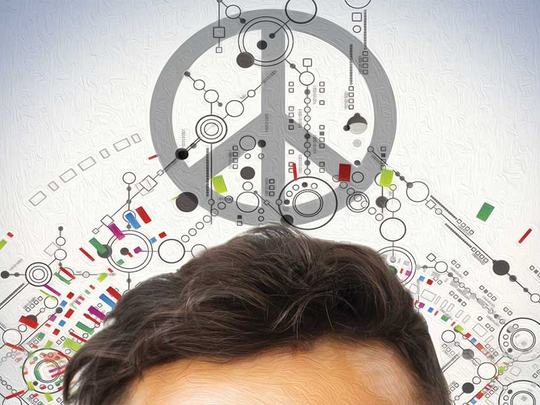
Much is said about the numerous benefits of travelling to observe other cultures at close proximity. Modern communication tools and channels, including news and social media, have made it extremely easy to bring the world before us at a finger tip without a sweat. Yet, the real personal experience can only be obtained through face-to-face contact and cultural exchanges with people.
A blend of thoughts and emotions crossed my heart and mind as we entered the waters of the Baltic states during a recent voyage to the region. Firstly, it brought us face-to-face with European passengers and crew, some of whom may still have been under the impact of the carnage against tourists, mostly British, in Tunisia last July. I was really astounded by the calm and positive reception we received, without being lumped in a stereotype with terrorists claiming to be Muslim Arabs. On the contrary, they did not consider this toxic waste of humanity that killed innocent lives sunbathing on the beach in Tunisia as typical Arabs or Muslims, but only a very small minority found in every nationality and religion. Indeed, it was a relief to notice that the Palestinian Cause was particularly well-received by the passengers on the ship, considering that European views on the Palestinian question were once very one-sided and extremely biased. Feelings of sympathy and understanding were voiced by passengers for Palestinians facing the daily brutality of the Israeli military occupation — the only one remaining in this world.
A second contemplative thought came to mind while observing the civil societies of these Baltic countries; namely the nature of the processes that led them to have such prosperous and peaceful lives after a very turbulent history filled with carnage, religious wars and civil conflicts that went on for a very long time. They managed to rise from utter anarchy to form civilised democracies, providing their societies with a productive and tranquil life. It is, as a part of a process, the behaviour of their governments that collect high taxes ranging between 25-40 per cent, but instead of ‘lining their pockets’ with these funds, they keep them in national investment projects to upgrade health care, education, skills training and maintenance of the infrastructure. A mother who gives birth is allowed 18 months of paid vacation to take care of the newborn and the period is going to double in the near future and shared equally by the mother and the father. These governments have recognised the fact that children neglected without care and love always turn to be monsters seeking revenge in their adult life. This surely brings to mind millions of neglected children in the Arab world feeding the ranks of the toxic waste of the fighters of Al Qaida and Daesh (the self-proclaimed Islamic State of Iraq and the Levant) along with children of dysfunctional migrant European individuals of Arab origin who are growing in number in the killing fields of the Middle East.
A third contemplative thought regarding separation of religion from the state crossed my mind while visiting Norway, one of the Baltic countries that managed to free themselves from the tight grip of ignorance, finally resolving their religious conflicts for good, banishing the priesthood from ruling both the state and the church that kept the populace in the pit of superstition for centuries. Norway was the poorest nation among the Baltic states till the oil discovery in the North Sea in the middle of the last century. The country experienced the longest civil war in history, which lasted for more than 100 years. Norway never forgot its past poverty and never indulged itself with the riches of the oil revenues by wasting it like the newly rich do, but saved its wealth and built a national investment fund as an insurance tool to keep its prosperity solvent for hundreds and hundreds of years to come.
I felt a whiff of hope thinking of a possible light at the end of the tunnel that the Arab world, torn by its tribal, political and sectarian conflicts, might finally rise from the ashes to build a new future for its next generations. The question is: Can Muslims rid themselves of the Islamic priesthood they created contrary to the teachings of the Quran, which absolutely forbids the establishment of any religious authority with a power to religiously judge and blaspheme people before the Day of Judgement where God the Most High is the only Judge?
With the advent of early Islam and in the span of 25 years, Arabs have changed from invading each other into nations that support learning and scientific research, adopting “reason, cause-and-effect” to explain natural phenomena. The Arab renaissance reached the West, educating minds in its learning institutions. So, modern education, knowledge and skills-training are needed to empower the Arab youth with liberating capabilities being the backbone of development in a climate of freedom, democracy and justice away from religious conflicts and extremism. An old sage once admonished a youthful able beggar saying: “I will not give a fish every day to help your survival, but I can teach you how to fish to feed yourself and be a human being with dignity as your Creator intended you to be!
Professor As’ad Abdul Rahman is the chairman of the Palestinian Encyclopaedia.









